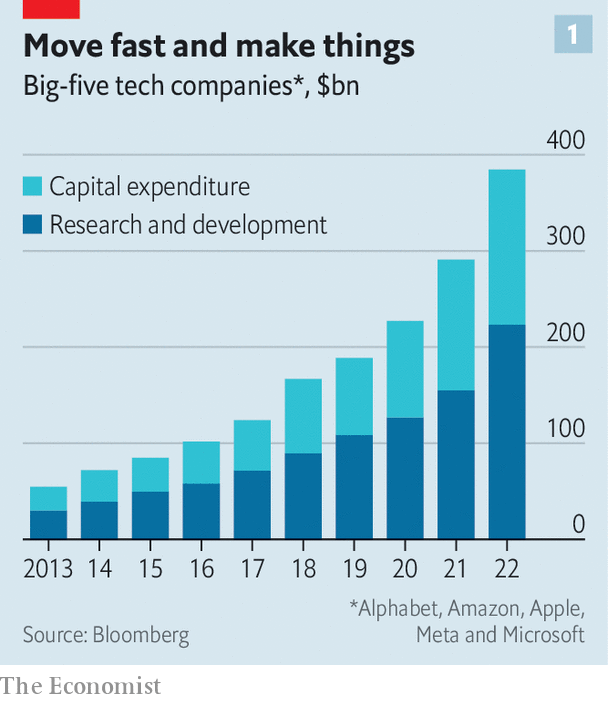Font size:
Print
Big Tech’s AI Race
How Big Tech is outpacing the regulatory rulebook
Context: Artificial intelligence is evolving at breakneck speed, with new developments emerging almost weekly.

More on News
- Industry leaders like OpenAI, Google, Meta, Microsoft, and Anthropic are rolling out increasingly advanced AI models, integrating them deeper into everyday products and services.
- However, this AI boom is powered by one critical fuel: data—including vast amounts of online content and personal user information.
Data Behind AI: A Legal Minefield
- Sources: The data underpinning today’s powerful AI tools is often scraped from websites or drawn from user behavior—sometimes without explicit consent.
- Challenges: This practice has led to mounting legal challenges and global regulatory scrutiny, particularly regarding user privacy and intellectual property rights.
- One prominent example is the 2020 class action lawsuit against Google (Brown et al vs Google LLC).
- In April 2024, the company agreed to a settlement valued at $7.8 billion, including the deletion of large troves of collected user data.
- Google also settled another lawsuit with the Texas Attorney General over deceptive location tracking practices, agreeing to pay $1.4 billion for tracking users’ biometric and geolocation data without proper consent.
Meta and the Biometric Data Debate
- Unauthorised Access: Meta, the parent company of Facebook and Llama AI, has also faced serious accusations related to unauthorised use of biometric data.
- In one major case, the company paid $1.4 billion to resolve claims that it had illegally used users’ facial recognition and biometric information.
- Settlement: Like Google, Meta denied wrongdoing, opting for settlement to avoid prolonged litigation or potentially precedent-setting court rulings.
OpenAI and the Copyright Conundrum
- Copyright: While Google and Meta face scrutiny for data privacy, OpenAI is being sued over copyright infringement.
- The company, which developed ChatGPT, is accused of scraping vast quantities of online content—including copyrighted materials—without permission to train its large language models (LLMs).
- Lawsuits: Major entities such as The New York Times and Indian and international book publishers have filed lawsuits, alleging their intellectual property was used without consent.
- Media publisher Ziff Davis also joined the legal wave in April 2025, further intensifying pressure on OpenAI.
Settlements and Denials
- Across these cases, a clear pattern has emerged: Tech giants settle lawsuits while denying any wrongdoing.
- This legal strategy allows them to avoid damaging court precedents while continuing business as usual.
- Critics argue that this emboldens companies to push the boundaries of data use without meaningful consequences, creating a dangerous imbalance between innovation and accountability.
Regulators Race to Catch Up
- Regulatory bodies around the world are scrambling to establish digital rights protections and AI-specific regulations, but progress is uneven:
- Europe’s General Data Protection Regulation (GDPR) remains the most robust framework, imposing heavy fines and enforcing user consent.
- The EU has also begun wielding the Digital Markets Act to address broader tech dominance issues.
- In 2025, Meta was fined by the EU for violating consent norms, marking a significant enforcement step under new digital laws.
- The EU AI Act, a dedicated AI regulatory framework, is slated for full implementation in August 2025, but its real-world impact remains to be seen.
India and China
- India is charting its own course with the Digital Personal Data Protection Act, 2023.
- This legislation aims to balance strong user consent requirements with flexibility for innovation, as the country positions itself both as a tech regulator and a major player in the AI space.
- China enforces stringent data localisation rules, making it difficult for foreign firms to export sensitive user information.
- Yet, the country aggressively supports domestic AI development, giving local firms access to large datasets while maintaining tight control over data flows.
Until global regulators can match the speed and sophistication of AI development, the balance of power will remain tilted in favor of tech companies. In the meantime, users and society at large must grapple with the consequences of a technological revolution largely led by corporations operating beyond traditional boundaries.
Subscribe to our Youtube Channel for more Valuable Content – TheStudyias
Download the App to Subscribe to our Courses – Thestudyias
The Source’s Authority and Ownership of the Article is Claimed By THE STUDY IAS BY MANIKANT SINGH





